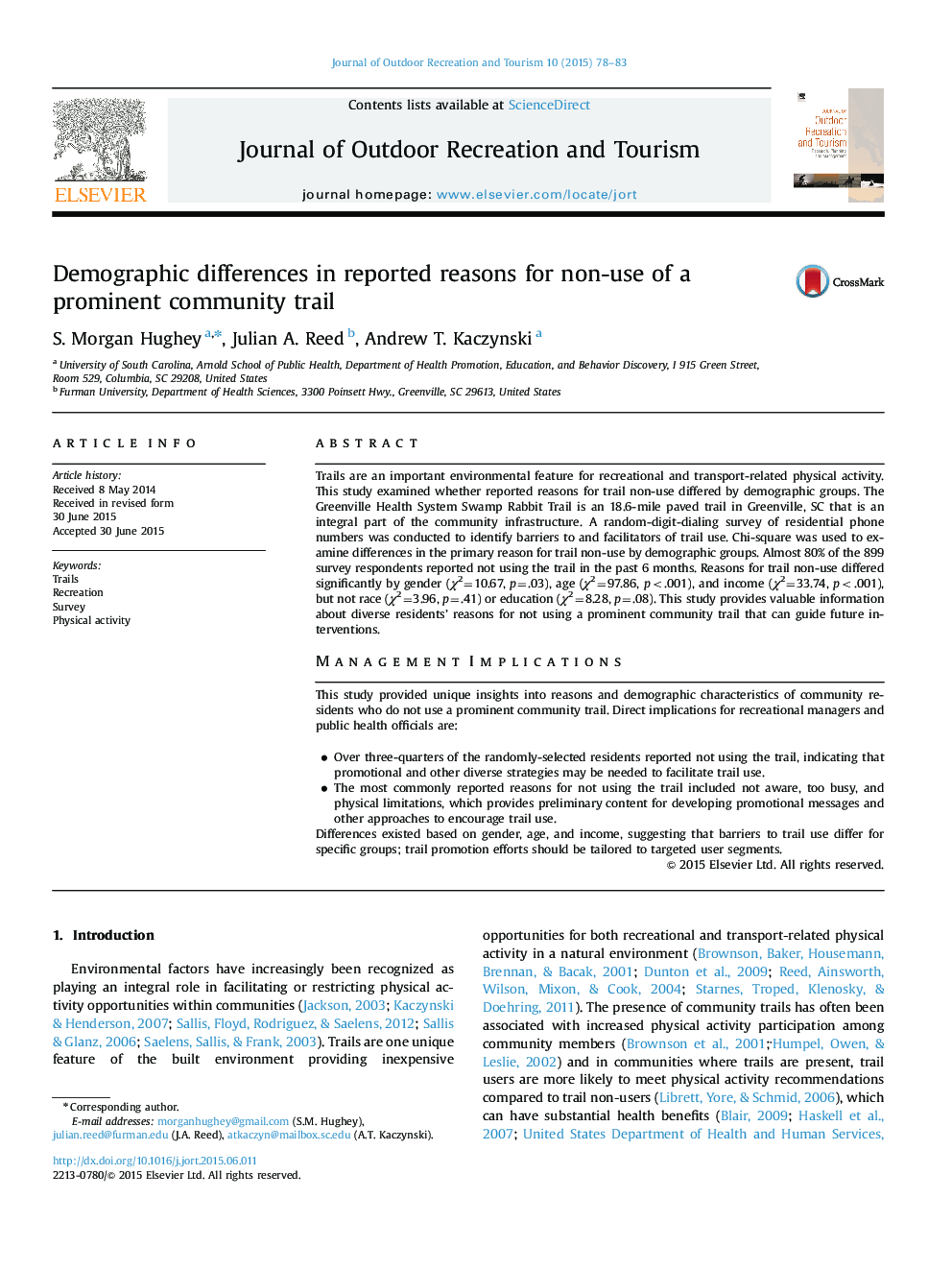| Article ID | Journal | Published Year | Pages | File Type |
|---|---|---|---|---|
| 92378 | Journal of Outdoor Recreation and Tourism | 2015 | 6 Pages |
Trails are an important environmental feature for recreational and transport-related physical activity. This study examined whether reported reasons for trail non-use differed by demographic groups. The Greenville Health System Swamp Rabbit Trail is an 18.6-mile paved trail in Greenville, SC that is an integral part of the community infrastructure. A random-digit-dialing survey of residential phone numbers was conducted to identify barriers to and facilitators of trail use. Chi-square was used to examine differences in the primary reason for trail non-use by demographic groups. Almost 80% of the 899 survey respondents reported not using the trail in the past 6 months. Reasons for trail non-use differed significantly by gender (χ2=10.67, p=.03), age (χ2=97.86, p<.001), and income (χ2=33.74, p<.001), but not race (χ2=3.96, p=.41) or education (χ2=8.28, p=.08). This study provides valuable information about diverse residents’ reasons for not using a prominent community trail that can guide future interventions.Management ImplicationsThis study provided unique insights into reasons and demographic characteristics of community residents who do not use a prominent community trail. Direct implications for recreational managers and public health officials are:•Over three-quarters of the randomly-selected residents reported not using the trail, indicating that promotional and other diverse strategies may be needed to facilitate trail use.•The most commonly reported reasons for not using the trail included not aware, too busy, and physical limitations, which provides preliminary content for developing promotional messages and other approaches to encourage trail use.Differences existed based on gender, age, and income, suggesting that barriers to trail use differ for specific groups; trail promotion efforts should be tailored to targeted user segments.
